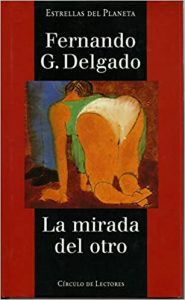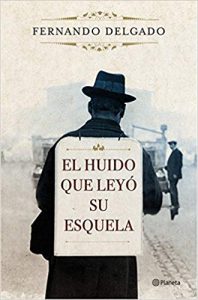Fernando Gonzalez Delgado he is a communicator in very diverse fields. Journalism, literary criticism, politics and literature are three of those areas in which it operates with equal solvency. Of course, what is involved here is to delve into his literary work to determine those three recommended novels that we will go on to review immediately.
In addition to the novel, a field where this author has always been strong, even achieving the Planet award in 1995, Fernando Delgado has also written essay-tone books with a clear social component.
In total 19 published works consolidate him as one of those writers always to consider when announcing a novelty. In the field of fiction, it is already known that it will provide a new interesting story and in non-fiction it will provide a new critical look at the state of things, an analysis with its impressions that must be taken into account. His last novel was The fugitive who read his obituary, which I already reviewed here.
3 recommended books by Javier Delgado
The gaze of the other
His takeoff with the Planet award coincides in my opinion with his best fiction work so far, closely followed by the following. But the place of honor must be for this story with its suggestive title and unforgettable plot.
Begoña, heir to the tradition of a family of the upper bourgeoisie, discovers in her husband the secret reader of an intimate diary in which she recounts the premature experience that revealed her interest in older men. Her fidelity to that diary inevitably inclines her to a double life in which desires and reality merge and confuse.
From here, and with a growing intrigue that will captivate the reader from the beginning, we witness the duel, often erotic, that this complex woman sustains between reality and her own dreams. The gaze of the other is an overwhelming journey to helplessness and loneliness.
With a prose of unalterable beauty, Fernando G. Delgado shows us his ability to involve the reader in a psychological framework full of intricate and credible emotions.
The fugitive who read his obituary
I recover my impressions on this novel already reviewed: The past always ends up coming back to collect the pending bills. Carlos hides a secret, sheltered in his new life in Paris, where he became an Angel.
It is never easy to let go of the ballast of a previous life. Even less if in that other life a traumatic and violent episode was the one that ended up forcing Carlos to change his identity and life. Either way, you can always carry a secret for years.
Until one day Ángel receives a letter in the name of his original identity. There was the past, emerging from the same waters in which he could have been presumed dead, drowned according to the relevant investigation. There is never an easy reconciliation between what was and what is. Even less if the natural change of the passage of time is completed with a complete transformation.
Ángel or Carlos suddenly finds himself in an extreme situation. Decisions in these types of situations are usually drastic, for better or worse. The fugitive who read his obituary is the culmination of a unique trilogy presented in the last three decades. A suggestive long-form thriller with a dynamic and fascinating plot.
Tell me about you
Published back in 1994, this story remains valid. Love, heartbreak and loneliness do not have an expiration date, it is a feeling that goes with the human species.
It is a love novel, but above all it is an exercise in penetrating human loneliness. The author and protagonist of it, Marta Macrí, writes it as if she suddenly began to observe herself from behind her own shoulders. The love adventure begins in Assisi and develops in this and other Italian cities.
The letters that the protagonist writes from Madrid to her Italian lover make the story integrate not only Marta's daily life, but, above all, her personal drama as a mother. The two stories, cleverly intertwined, describe the protagonist couple's journey into their own interior.
A literary journey, undoubtedly novelistic, but never out of tune with the warmest life. The protagonist's peculiar courage, her stark irony and her meticulous contemplation of reality, push us to follow her human adventures.
Tell me about yourself is a cruel mirror of the effect that disappointments have. A mirror of careful and effective prose, which takes the book in increasing steps of interest.



